Beginner’s Guide to Puppy Health
Choosing to add a new member to your family is an exciting decision. When you adopt a puppy, one of the most important aspects of ownership is your dog’s health. In this guide, you’ll learn the first steps you should take as a new pawrent to provide your pup with the best health care early on in puppyhood.
Continue reading to learn the best puppy care methods.
How Soon Should I Bring My Puppy to the Vet?
Whether your puppy is from the local shelter or a champion line, it’s essential to schedule a vet appointment early on. Establishing a veterinarian early on in your dog’s life is a proactive step you can take to protect your puppy from illness. A vet who knows your dog and what’s normal for them — as well as what might be signs of illness — can help prevent more serious issues down the road.
If you adopted your dog from a shelter, the American Kennel Club (AKC) recommends an immediate visit to the vet. Although the shelter will provide you with as much information as they have, the exact background of your dog may be unknown, and they may have been exposed to a number of diseases.
Even if your pup is purebred, most breeders include mandatory veterinary care in their contracts. Often, you’ll be required to take your new puppy to the vet within three days of taking them home. Additionally, your puppy will need to see the vet at least once a year and require specific vaccinations as a condition of sale.
During your puppy’s first vet visit, the vet will cover a number of essential health exams. First and foremost, they will weigh your puppy. Then, they will examine your puppy for potential health issues. To do this, they will:
- Listen to the heart and lungs
- Take your puppy’s temperature
- Examine ears, eyes, nose, paws, skin, coat, etc.
- Look into the mouth at gums, teeth, and tongue
- Examine a stool sample (many puppies have roundworms)
- Palpate the abdomen and lymph nodes
Aside from the physical examination, the vet should discuss your puppy’s health history. Additionally, they should answer questions about feeding, medications, medical issues, and future care. For example, you might discuss getting a microchip for your puppy and spaying or neutering them.
What Are Common Health Problems for Puppies?
As a new puppy owner, it’s important that you learn about some of the common health problems puppies face. In doing so, you’ll know the signs that your puppy isn’t feeling well. Common health problems for puppies include:
- Canine distemper: This dangerous illness is carried by raccoons and unvaccinated dogs, causing weight loss and nerve damage. Unlike humans, dogs don’t get colds. If you notice your puppy’s nose is runny or they lost their appetite, these are indicators that your dog isn’t feeling well and needs to visit the vet.
- Coccidia: If your puppy wasn’t living in a clean environment before you adopted them, they are at risk for this parasite. This parasite, usually found in stagnant water, infests the gastrointestinal tract and cells inside a puppy. If you find that your dog has diarrhea, is dehydrated, or if there’s blood in their stool, visit the vet immediately.
- Heartworm disease: All dogs can contract heartworms from a bug bite. Typical symptoms can take up to six months to show up, including weight loss, decreased appetite, and fatigue. Luckily, dogs can be put on a preventative pill.
- Hypoglycemia: This is especially common in small dogs if they don’t eat enough. It can cause seizures and lethargy. For this reason, it’s important to monitor your puppy’s eating habits.
- Intestinal parasites: Loose stool and stomach upset indicate intestinal parasites, like hookworms or roundworms. Puppies with intestinal parasites likely got them from drinking their mother’s milk and can be given a deworming treatment at their first visit.
- Kennel cough: Puppies are more vulnerable to this illness, although any dog can contract it. If your puppy is dry coughing persistently, it could have kennel cough.
- Parvovirus: If your puppy has parvo, it may have a decreased appetite, vomiting, and bloody diarrhea. This is a very contagious virus that can infect your puppy when they come into direct or indirect contact with contaminated feces.
8 Tips to Ensure Your Puppy Is Healthy
To keep the newest member of your family healthy, there are several steps you can take. Here are eight tips to keep your pup safe.
Start Your Puppy on a Healthy Diet
Providing your pup with nutritious puppy food early on is essential to their health. It’s important for your pup to eat nutritious food throughout their lifetime to avoid health problems as adult dogs and to feel their best.
Bully Max provides puppies and dogs with the highest-quality ingredients on the market. Our High-Performance Dog Food is suitable for dogs four weeks and older and can give your pup the energy they need to grow and play. You also don’t need to worry about the ingredients because our food is all-natural with added vitamins, minerals and trace nutrients. It’s made with a healthy ratio of 30% protein and 20% of fat.
Stay Up to Date With Vaccinations
Next, you will need to stay up-to-date with vaccinations. This form of preventative care ensures your puppy won’t contract the parvovirus while at the dog park, along with other preventative illnesses. During your puppy’s first year, they will need a number of vaccines. Additionally, they will require boosters and titers throughout their life to make sure their immune system has a defense against common illnesses.
Here’s a list of vaccines your puppy will need in their first year:
- Canine distemper
- Canine hepatitis
- Parainfluenza
- Parvovirus
- Rabies
Keep Up With Annual Exams
After your puppy receives the vaccines listed above, they will need to see the vet annually. Early detection of serious illnesses is key to helping your puppy live a long and healthy life. Since dogs can’t speak for themselves, it’s important that your vet does an in-depth exam every year. This should include a dental check, blood-chemistry panel, complete blood count, and a review of their vaccine record.
Get Your Pup on Preventatives
You can prevent many common puppy illnesses with preventatives. Treating your puppy can prevent fleas, ticks, and heartworm — painful pests that are not only severely uncomfortable for your dog but also dangerous.
Start Training Early
Another important step you can take to improve your dog’s health is through training. When a puppy is well-trained, you can help them improve their physical health through fun activities like fetch, walks, and agility training. Moreover, you can avoid troublesome behaviors like barking and get into things they shouldn’t.
Socialize Your Puppy
In the same vein as training your pup, you will also want to make sure you socialize your puppy within the first three months of life and continue to do so as they grow. Owning a dog is a big responsibility, which can be eased once your dog is well-behaved around humans and other animals.
Socialization teaches confidence to your dog so that they won’t be scared in new situations. This can help them feel more comfortable in new environments.
Make Sure Your Puppy Gets Enough Exercise
Taking your puppy for a walk can burn off some of that puppy energy and teach them how to behave while they’re young. Although your dog might love running, it’s best to avoid runs and hiking until they are about a year and a half old. Avoiding these types of exercises can prevent injuries in the growth plates while your pup continues to grow.
It’s also important to note that not every dog is going to love every activity. For instance, a Labrador retriever puppy might love swimming in the pool, while an Australian shepherd might prefer playing frisbee.
Learn Their Body Language
Lastly, knowing your dog can help you notice health issues. Observing your dog and learning how it communicates its mental and physical condition is helpful for your dog’s health and your bond. Changes in breathing, scratching/licking paws, and the position of their ears or tail can indicate health issues.
Treat Your New Best Friend With Bully Max
Making sure your first puppy is eating the right food is essential to ensuring a long life. Purchasing quality food for your new best friend is one of the first steps you can take to building a long and healthy life for your puppy.
Bully Max offers a top-rated line of performance dog food and supplements to keep your dog feeling healthy and playful for years to come. And with products that work for all breeds and ages, you never have to worry about providing your puppy the best care. Discover a line of products today.

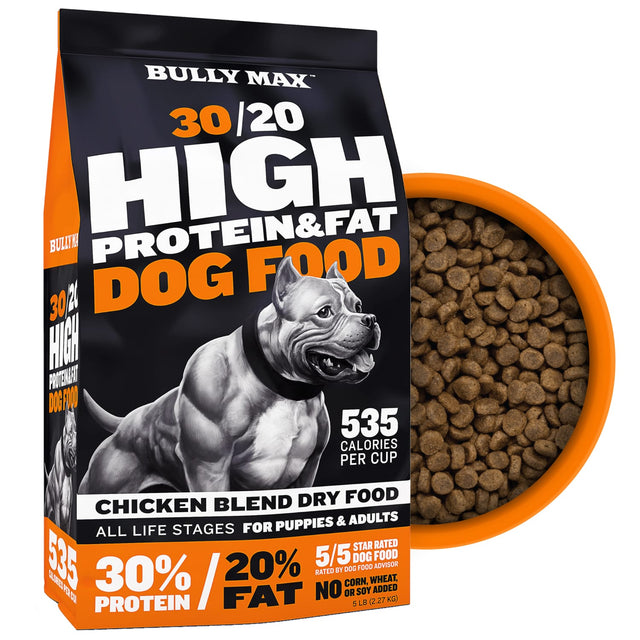

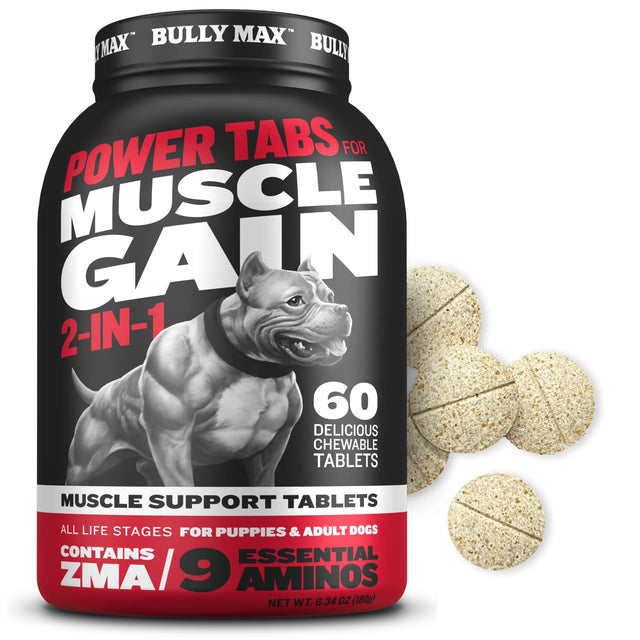
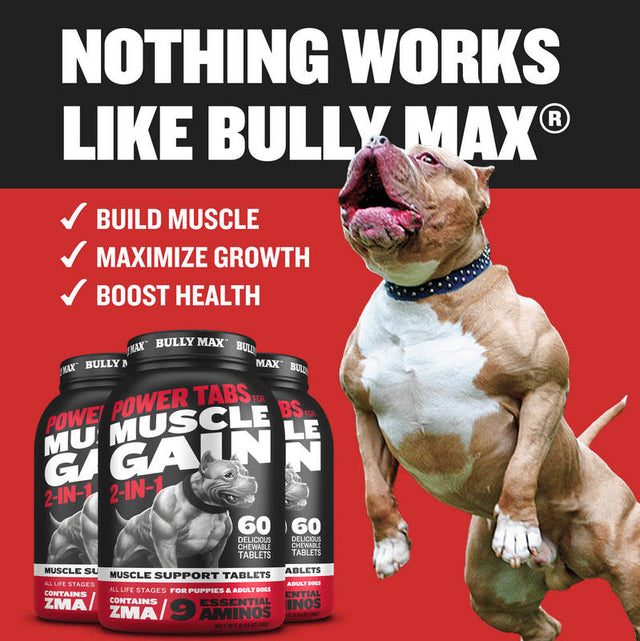
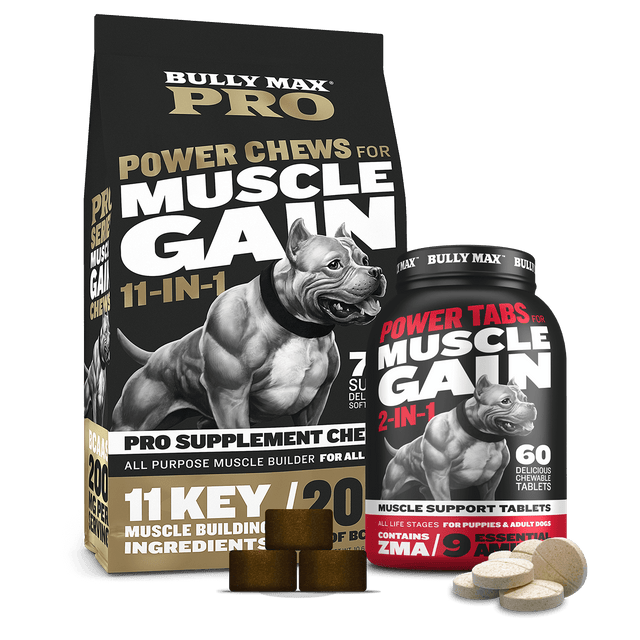






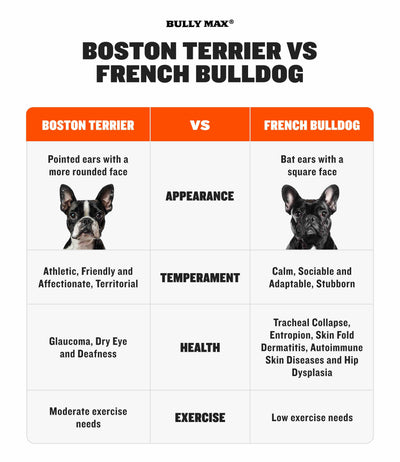
1 comment
It really helped when you elaborated on taking our puppy to see a vet annually. I’m adopting a puppy in a few weeks, so I’d like to learn how to give the best care to her, and I believe your guide will definitely help me out. Thank you for the intake on detecting illnesses well in advance to help our puppy live a long and healthy life.